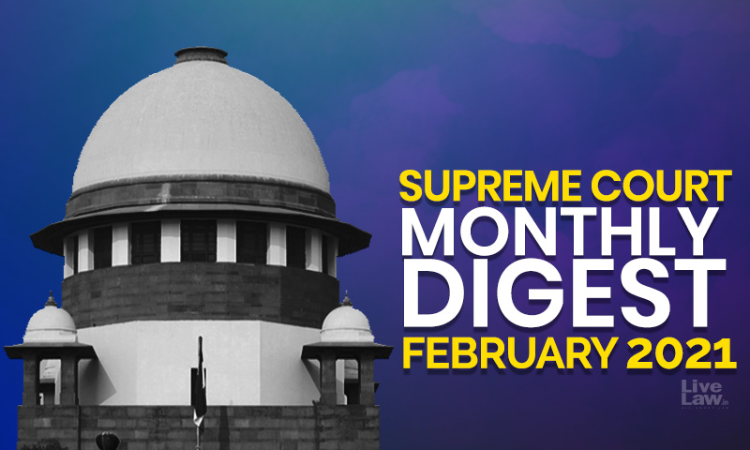- Home
- /
- Top Stories
- /
- Supreme Court Monthly Digest:...
Supreme Court Monthly Digest: February 2021
Akshita Saxena
11 March 2021 11:03 AM IST
JUDGMENTS 1. Collusive Commercial Transactions With Corporate Debtor Will Not Constitute 'Financial Debt' Under IBC: Supreme Court [Case: Phoenix Arc Private Limited v. Spade Financial Services Limited; Citation: LL 2021 SC 55] A Bench comprising of Justices DY Chandrachud, Indu Malhotra and Indira Banerjee held that collusive or sham transactions with a corporate debtor will...
Next Story



